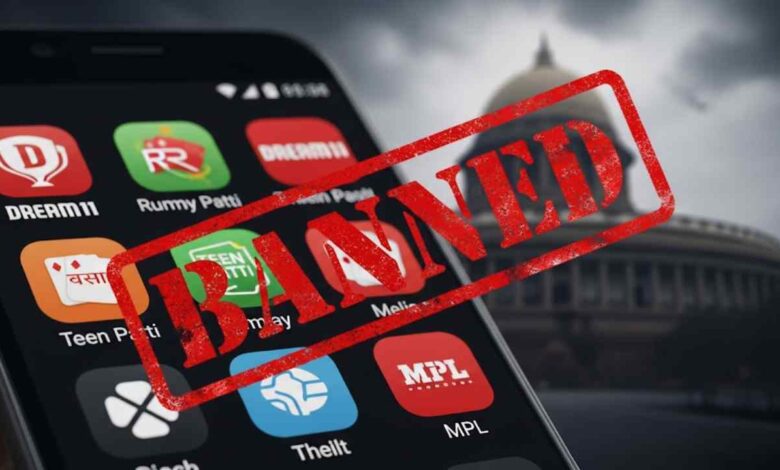Online Gaming Ban in India: 3 Years Jail, ₹1 Crore Fine in New Bill

Online Gaming Ban: A complete ban on online gaming is finally on the horizon in India. Recently, the Indian government has proposed a new bill, “The Promotion and Regulation of Online Gaming Bill 2025.” The main objective of this bill is to completely ban online games involving real money, such as platforms like Dream11 and Rummy. The government’s move is driven by serious concerns like gaming addiction, suicides, and money laundering.
Key Provisions of the New Bill
According to this new bill, all online games that involve monetary transactions will be banned. This includes developers, promoters, platforms, and advertisers. The bill stipulates strict penalties for violators, who could face up to 3 years in jail and/or a fine of ₹1 crore. If a platform repeatedly violates the rules, its domain will be blocked, and the platform may be shut down.
However, the bill makes a clear distinction between e-sports and real-money online games. The government aims to encourage and regulate skill-based competitive gaming and has proposed the formation of a new “National E-Sports Authority.” The role of this authority will be to govern professional gaming tournaments and sponsorships to protect the youth and low-income individuals from financial ruin.
Reasons Behind the Government’s Action
- Mental and Family Issues: Such games are leading to a rise in psychological problems, family disputes, and a decline in mental health.
- Financial Ruin: Many young people are losing their entire savings, taking loans, and even selling family assets due to their addiction to these games.
- Illegal Activities: There are concerns that these gaming platforms are being used for illegal betting, hawala transactions, and terror financing. The government believes this ban is necessary for public safety.
Concerns from the Gaming Industry
On the other hand, the online gaming industry has expressed deep concern over the government’s decision. The Indian online gaming market is currently valued at about $3.7 billion and is projected to reach $9 billion by 2029. As 86% of this revenue comes from real-money gaming, there are fears that the ban will have a significant impact on the country’s economy and reduce government revenue.
Furthermore, there is a risk of thousands of job losses in the gaming, fintech, and marketing sectors. This ban could also deter foreign direct investment (FDI). The industry argues that a ban will push users towards unregulated offshore apps, increasing the risk of fraud.
The All India Gaming Federation has appealed to the Home Minister to introduce a progressive regulatory framework instead of an outright prohibition. They argue that games like fantasy sports, Rummy, and Poker are skill-based, not just games of chance, and therefore should be regulated rather than banned.
It now remains to be seen whether this bill will be passed in the Lok Sabha and what direction the future of online gaming in India will take.

